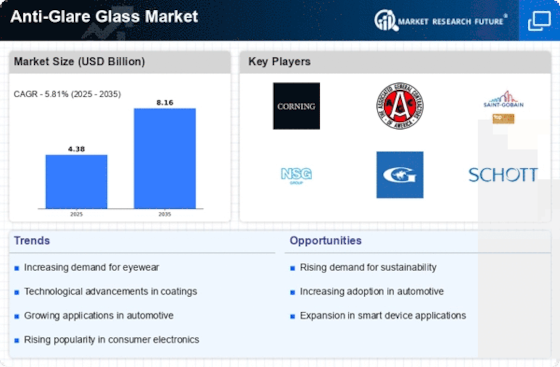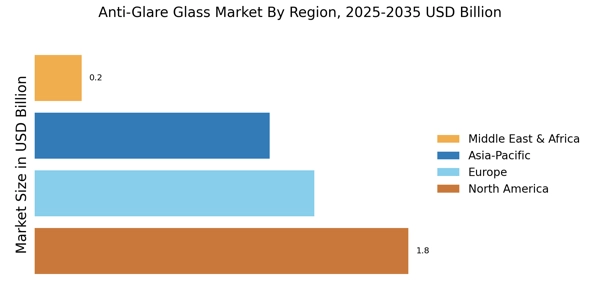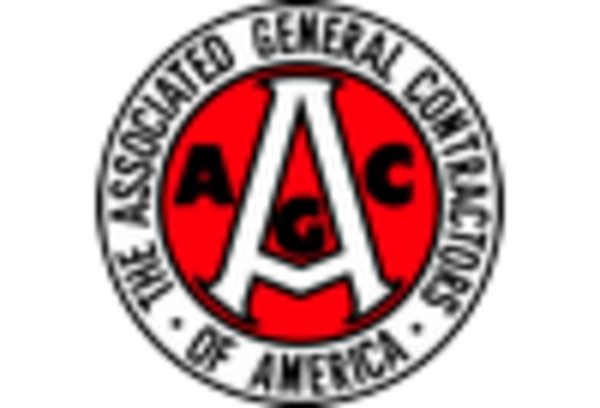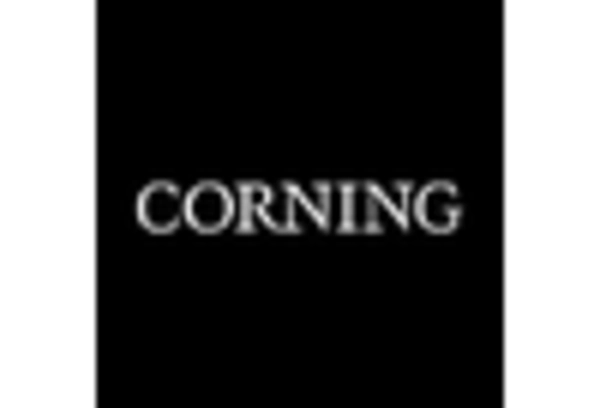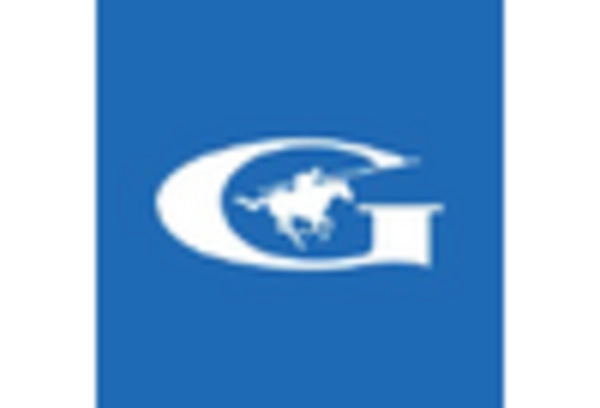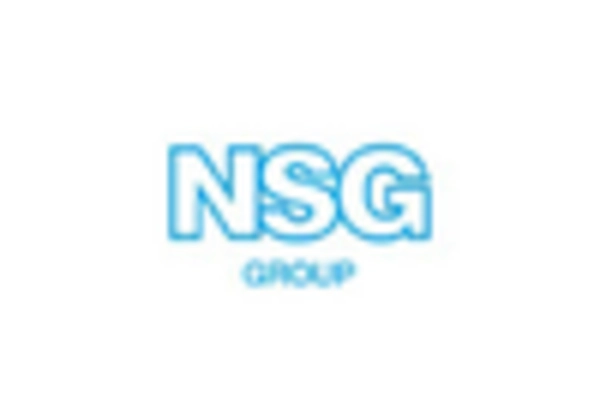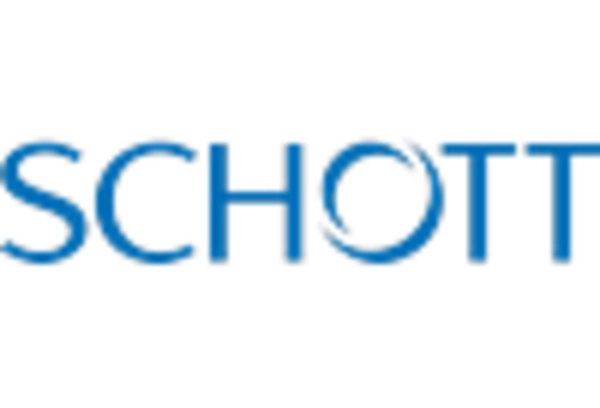Increased Application Areas
The Anti-Glare Glass Market is witnessing an expansion in application areas, which is driving its growth. Beyond traditional uses in windows and screens, anti-glare glass is now being adopted in various sectors, including healthcare, education, and architecture. For instance, in educational institutions, anti-glare glass is used in smart boards and projectors to enhance visibility and reduce eye strain. The healthcare sector also benefits from anti-glare solutions in medical devices and displays, where clarity is paramount. This diversification of applications is likely to contribute to a projected market growth of around 5% annually, as industries recognize the benefits of glare reduction. Consequently, the Anti-Glare Glass Market is evolving to meet the needs of diverse sectors.
Consumer Awareness and Preferences
Consumer awareness regarding the benefits of anti-glare glass is a significant driver for the Anti-Glare Glass Market. As individuals become more informed about the adverse effects of glare on vision and comfort, the demand for anti-glare solutions is likely to increase. This heightened awareness is particularly evident in the electronics market, where consumers prefer devices equipped with anti-glare screens to enhance usability. Furthermore, the trend towards remote work and online learning has amplified the need for anti-glare solutions in home office setups. As a result, manufacturers are responding by offering a wider range of anti-glare products, which is expected to further stimulate growth in the Anti-Glare Glass Market.
Rising Demand in Automotive Sector
The automotive sector is a key driver for the Anti-Glare Glass Market, as manufacturers seek to enhance driver safety and comfort. Anti-glare glass is increasingly utilized in vehicle windshields and displays to minimize glare from sunlight and headlights, thereby improving visibility. With the automotive industry projected to grow significantly, the demand for anti-glare solutions is expected to rise correspondingly. In 2025, the automotive segment is anticipated to account for a substantial share of the overall market, reflecting a growing trend towards integrating advanced materials in vehicle design. This shift not only enhances safety but also aligns with consumer preferences for high-performance vehicles, thereby bolstering the Anti-Glare Glass Market.
Sustainability and Eco-Friendly Solutions
The growing emphasis on sustainability is influencing the Anti-Glare Glass Market, as consumers and manufacturers alike seek eco-friendly solutions. The production of anti-glare glass is increasingly incorporating sustainable materials and processes, aligning with global environmental goals. This shift is not only beneficial for the planet but also appeals to environmentally conscious consumers who prefer products that minimize ecological impact. The market is likely to see a rise in demand for anti-glare glass that meets sustainability standards, potentially leading to a market growth rate of 4% over the next few years. As companies innovate to create greener products, the Anti-Glare Glass Market is poised to adapt to these changing consumer preferences.
Technological Advancements in Anti-Glare Glass
The Anti-Glare Glass Market is experiencing a surge in demand due to rapid technological advancements. Innovations in coating technologies, such as anti-reflective coatings, enhance the performance of anti-glare glass, making it more effective in reducing glare and improving visibility. These advancements are particularly relevant in sectors like automotive and electronics, where glare can significantly impair functionality. The market is projected to grow at a compound annual growth rate of approximately 6% over the next five years, driven by these technological improvements. Manufacturers are increasingly investing in research and development to create more efficient and durable anti-glare solutions, which is likely to further propel the Anti-Glare Glass Market.


